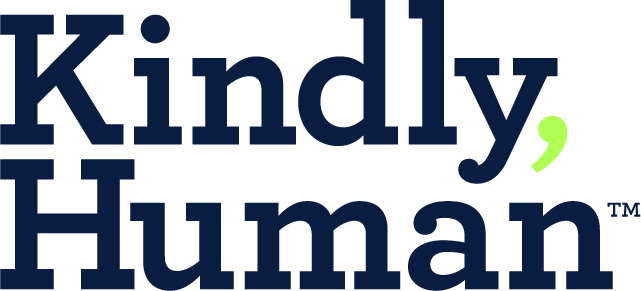Reduce Workplace Loneliness With Peer Support For A Healthier Bottom Line
“Within mental health, there is no doubting the benefits that people experience as a result of doing peer support…”
— 2019 Journal of Mental Health editorial (3)
Loneliness is an epidemic in this country. Psychologists, HR leaders and even the U.S. Surgeon General all recommend creating meaningful connections to tackle the negative effects of loneliness at work. From a practical standpoint, though, how do you make that happen?
An answer—and the solution you may not have tapped into yet—is professional peer support.
Connections created by peer support decrease feelings of loneliness and isolation. That’s important for individuals and organizations. Insurer Cigna estimates that a lonely worker costs an employer $4,200 annually in lost workdays.(4) And because peer support is preclinical, it’s a cost-effective pathway for making helpful connections quickly.
It's lonely out there
About two-thirds of working adults consider themselves lonely. (4) The mental and physical problems associated with loneliness are well documented. There are financial impacts, too—a staggering $154 billion each year for employers.(1) Lonely employees tend to be less productive, less engaged, absent more often and more likely to consider leaving their jobs.
One Boston psychologist says loneliness at work stems from the belief that “few people truly know me or would support me in my time of need.”(5) To counter that idea, employers may need to “orchestrate empathy” by facilitating safe, comfortable interactions among people.
Create positive human connections, but how?
Peer support from colleagues has been shown to reduce stress, lower intentions to quit, increase job satisfaction and even help with emotional exhaustion from overwork.(6) With more employees feeling stressed themselves, though, it’s tough—and maybe even unfair—to rely on them to support others. New resources for peer support are needed to bolster mental well-being.
Vivek Murthy, the U.S. Surgeon General, has been talking about the loneliness epidemic and the importance of building connections for years. He says that authentic connections are more likely to develop when people feel understood.(7)
That’s exactly what professional peer support does—helps people feel heard, understood and validated. Peer support offers safe, supportive and human-to-human connection. It’s also a low-pressure avenue for people to reach out in a time of need.
And unlike work-based volunteer groups, company-sponsored professional peer support benefits offer the added reassurance of confidentiality. Employees can tap into empathetic human connection without shame or stigma, which Murtha says applies to loneliness, too. People are “ashamed to admit they are lonely.” (7)
Also, by assigning peer support responsibilities to an external specialist, employers don’t have to rely on already-stressed workers to support each other. Third-party peer support platforms like Kindly Human focus on building and implementing the most effective peer support strategies. Managers, HR teams and colleagues can concentrate on their jobs while Kindly Human delivers individual support.
Activate peer support now
Peer support benefits are proven through years of research and experience. The Substance Abuse and Mental Health Service Association (SAMHSA) credits peer support with increasing a sense of belonging and decreasing feelings of social isolation.(8)
Because people experience loneliness differently, Kindly Human offers scalable peer support options for employees to connect. They can start with a large range of online tools and resources. For example, checking out inspiring real-world stories of people like them who’ve overcome similar challenges. Or they can talk to a trained Peer Listener who provides relevant, confidential and one-to-one human interaction.
Nearly all the people who use our peer support service—97%—report feeling better after talking to a Peer Listener.(2) Almost two-thirds (63%) say they feel less isolated.(2)
Peer support delivers an antidote for loneliness. It’s an important option for helping today’s employees be the productive, healthy and engaged team members organizations need to be successful.
To learn more about peer support for your organization, schedule a demo today.
References
1. https://www.marketplace.org/2023/03/01/the-cost-of-loneliness-social-isolation-holds-back-workers-and-costs-employers-billions/[JS2]
2. Kindly Human book of business, 2021-2022.
3. Journal of Mental Health, 2019, https://doi.org/10.1080/09638237.2019.16
4. https://www.cigna.com/static/www-cigna-com/docs/about-us/newsroom/studies-and-reports/combatting-loneliness/loneliness-and-its-impact-on-the-american-workplace.pdf
5. https://hbr.org/2021/06/employees-are-lonelier-than-ever-heres-how-employers-can-help
6. https://www.frontiersin.org/articles/10.3389/fpubh.2022.903975/full
7. https://www.forbes.com/sites/danschawbel/2017/10/07/vivek-murthy-how-to-solve-the-work-loneliness-epidemic-at-work/?sh=446171427172
8. https://www.samhsa.gov/sites/default/files/programs_campaigns/brss_tacs/value-of-peers-2017.pdf


